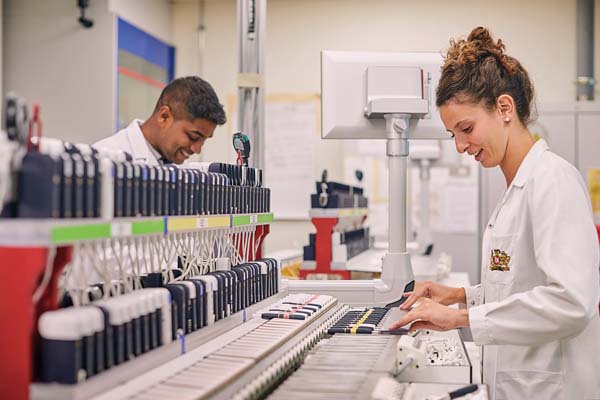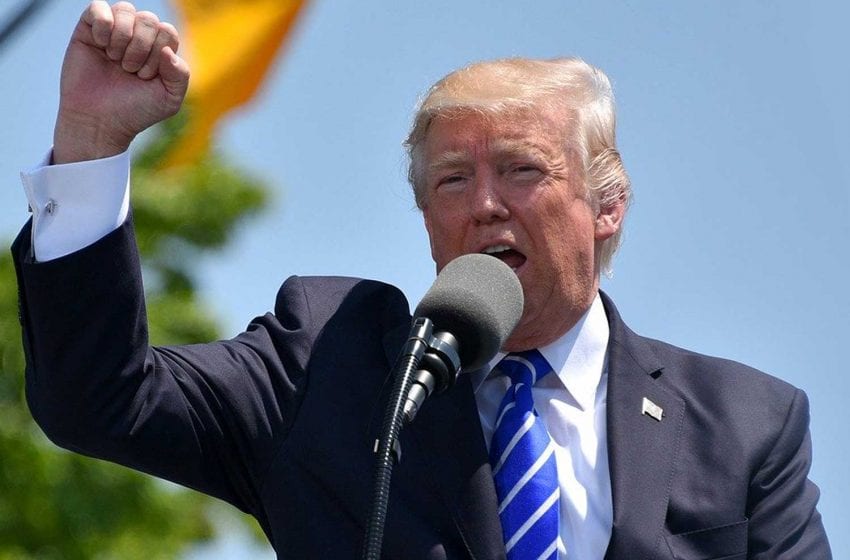PMI is the first international company to receive global “Equal-Salary” certification.
By Stefanie Rossel
In early March, Philip Morris International (PMI) became the first international company to be certified globally for pay parity between men and women for equal work by the independent Equal-Salary Foundation. While the certification confirms that PMI is a frontrunner in creating an inclusive, gender-balanced workplace, the sad aspect behind the news is that this achievement is still worth mentioning in the 21st century.
Unfortunately, even our great-granddaughters will be unlikely to live in a world of true gender equality. According to the most recent Gender Gap Report published by the World Economic Forum (WEF) in December 2018, at the current slow rate of change, it will take 108 years to close the overall gender gap and 202 years to bring about parity in the workplace. The study has found that stagnation in the proportion of women in the workplace and women’s declining representation in politics, coupled with greater inequality in access to health and education, offset improvements in wage equality and the number of women in professional positions, leaving the global gender gap only slightly reduced in 2018. According to the report, which assessed 149 countries, the world has closed 68 percent of the gender gap as measured across the four key pillars of economic opportunity, political empowerment, educational attainment, and health and survival. Across those four sub-indexes, on average, the largest gender disparity is in political empowerment, which today maintains a gap of 77.1 percent. The economic participation and opportunity gap is the second largest at 41.9 percent, while the remaining two stand at more than 4 percent each.
Regional variations are considerable. Worldwide, women hold only 34 percent of managerial positions. Only five countries—the Bahamas, Colombia, Jamaica, Laos and the Philippines—have achieved full parity on this indicator. Iceland, Norway, Sweden and Finland lead the WEF’s gender equality ranking, with each of these countries having closed over 82 percent of the overall gender gap. Also among the top 10 are Nicaragua (fifth), Rwanda (sixth), the Philippines (eighth) and Namibia (10th).
A long way to go
On average, women across the world are paid just 63 percent of what men earn. Laos, where women earn 91 percent of what men earn, is the country closest to achieving equal pay. Although equal pay is enshrined in the legislation of many countries, there is not a single country where women are paid as much as men.
The gender pay gap is the difference between what the median male employee is paid and what the median female employee is paid. It is expressed as a proportion of male earnings and female earnings and may vary depending on many factors, such as sector, occupation, age and country. According to Swiss Federal Office of Statistics estimates, about 60 percent of the male-female income difference can be explained by objective factors, such as differences in education, training and work experience, occupational gender segregation, part-time status versus full-time status, company size, union presence and family responsibilities. There is, however, no explanation for the remaining 40 percent, which are therefore attributed to direct and/or indirect discrimination, a result of gender bias often leading to unequal opportunities in training or promotions that affect remuneration.
In April 2018, The Guardian strikingly illustrated the salary gap by publishing a calendar displaying the dates at which U.K. companies effectively stopped paying their female employees. The calendar was based on the most recent figures from British companies with more than 250 employees, who since 2017 have been obliged by law to report their gender pay gap. It makes for a sobering read: In two leading tobacco companies listed, women started to work for free in early September and early November, respectively. PMI was not mentioned in the report because it did not reach the threshold for inclusion of 250 employees until later in 2018.
In-depth qualifying procedure
Only slowly are companies beginning to realize that, in this time of profound economic and societal transformation, they cannot afford to lose out on the skills, ideas and perspectives of half of the population.
PMI says it has placed inclusion and diversity at the core of its business strategy as a key enabler for the company’s transformation from a traditional cigarette manufacturer to a science- and technology-minded company developing smoke-free products. “Gender equality has always been important at PMI, even when I started 18 years ago,” says Melissa Whiting, PMI’s vice president for inclusion and diversity. “During the last five [or] six years, we began to focus more closely on gender balance and broader diversity as a strategic priority and set up a dedicated department. As we transform our company, an inclusive workplace allows us to attract and retain a diverse community of employees who are at the heart of our growth and innovation. At PMI, that means a work environment where personal situations are understood, differences are valued, everyone is treated with fairness and respect and supported to achieve their full potential.”
Achieving gender balance is an essential element of the company’s inclusion and diversity agenda and one of its top priorities, Whiting adds. “We view equal pay for equal work as a fundamental building block in this.”
While many companies believe that they pay men and women equally, PMI wanted to have its equal pay practices verified by an independent party. Hence it entered the 18-month global certification procedure by the Equal-Salary Foundation, whose rigorous assessment methodology was developed in collaboration with the University of Geneva. The Equal-Salary Foundation is a Swiss nonprofit organization that was established in 2010.
The two-step certification process includes a statistical analysis of all salaries of a company’s staff worldwide and onsite audits of country affiliates by PricewaterhouseCoopers, the foundation’s third-party auditor. The auditors talk to management to confirm their commitment to gender pay equality, hold focus groups with employees to understand their perception of that commitment, and review human resources-related policies and practices to identify gender bias, recommending corrective actions as needed. The process involves input and commitment from top down and bottom up, demonstrating the company’s commitment to equality.
“It was a lot of work, a very intense but positive process,” says Whiting. “In addition to confirming we were paying men and women equally for equal work, it helped us to focus more attention of our leaders on potential gender blind spots that can impact longer term pay equity.”
In the case of PMI, the foundation verified that PMI pays all of its approximately 77,000 employees in more than 90 countries equally for equal work, regardless of gender. The certificate is valid for three years.
By its global character, the certification of PMI is a major step for pay equality between women and men, according to Veronique Goy Veenhuys, CEO and founder of the Equal-Salary Foundation. “That a leading Fortune 500 company makes such a commitment is a strong signal,” she says. “We are proud of the international scale that PMI’s global certification gives to our cause.”
PMI’s global accreditation follows two local certifications: In 2015, PMI was the first company to obtain the Equal-Salary label in Switzerland, a country with a 17 percent gender pay gap. In Japan, where income disparity between genders amounts to 27 percent, PMI, in late 2016, was the first company outside Switzerland to be certified by the foundation.
Comprehensive programs
Equal pay for equal work, however, is only part of the complex issue. “While the global Equal-Salary certification doesn’t directly address the gender gap in senior leadership at PMI, the qualitative audit is helping us uncover potential barriers which may hinder equal opportunities for women to advance,” Whiting explains. “One of the recommendations from the audits taking place at our affiliate companies around the world was to look deeper at our recruitment, promotion, performance and attrition data for women as compared to men to see if there are any major differences as indicators of potential inequities or barriers creeping in. Another recommendation was to listen more regularly to women’s perceptions of equality. For example, if they perceive there is a glass ceiling in the organization, it can be demotivating, and they need to know that they will receive support from management to have equal opportunities for development and promotion as their male counterparts.”
Currently, 42 percent of PMI’s workforce is female. Across the company today, 35 percent of management positions are held by women. “Our goal is to increase that figure to at least 40 percent by 2022. We have made some progress: Since the end of 2014, this figure has risen by 6 percentage points. There are more women now at every level of management.”
The company has developed a holistic approach to advance parity: PMI aims to recruit equal numbers of men and women at entry levels. As employees advance in their careers, the company provides equal learning opportunities and personalized development plans for female leaders. It also offers flexible working arrangements for women and men. “There are many options, such as working remote and flexible start and finish times, but there’s more to be done,” says Whiting. Job-sharing management positions are also possible. “We have had such a case in Australia. It’s not the norm yet, but we continue to promote more flexible working arrangements that work for the individual, their team and the business.”
There are also a number of parental support programs, including, for example, the provision of pre- and post-maternity workshops, workshops for new fathers and a networking platform for parents. “We need to support the whole person, whether male or female,” says Whiting. “Every employee should be able to have a successful business and a fulfilling family life.”
Measures taken vary depending on the country where affiliates are located. At PMI’s operations center in Lausanne, Switzerland, for instance, employees have access to a creche for their children. And in PMI Germany’s office in Munich, the firm recently opened a family office, which is a big room where employees can work and where they can also bring their children if childcare is cancelled at short notice. The room is equipped with toys and working stations. Meanwhile, At Sampoerna in Indonesia, which represents almost 35 percent of PMI’s total workforce, the company says it has created fair and inclusive working conditions. Kretek production typically involves a lot of female laborers. “We are working to empower women in the local communities and provide trainings, for example on the management of the household income, among others. PMI also offers scholarship programs for the education of children of Sampoerna staff,” Whiting relates. “We try to find ways that work in each market where we operate. This could be training, childcare or both.”
The company’s recent certification and current efforts are only the beginning, Whiting confirms. “Work is changing towards a project-based, entrepreneurial work style. PMI needs to be increasingly agile. We will need to support men and women to perform at their best if we are to unlock the ideas, creativity and innovation needed to help us achieve our smoke-free vision.”











